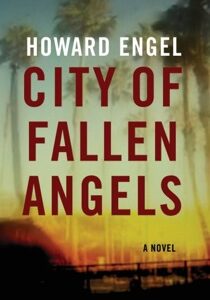In 701 B.C. the Assyrian empire was in its ascendancy. It had already vanquished the kingdom of Israel to the north including the capital at Samaria. It then prepared an assault on Judah and its capital at Jerusalem.
But in one of those significant events that changes the course of world history, Assyria was repelled. Jerusalem was saved until 586 B.C. when the Babylonians sacked the city, forcing its leadership class into exile.
Henry Aubin, in a major feat of scholarship, determines that Jerusalem was aided by a Kushite army from Africa which had marched northeast from the Nile valley. While the Bible attributes the Assyrian retreat to an angel and secular commentators cite pestilence, Aubin, in a meticulously documented work, demonstrates that an alliance with the African nation of Kush bolstered Jerusalem’s defences.
Kush, also known as Nubia, was located in what is now southern Egypt and northern Sudan. A monarchy that existed for more than 1000 years, from 900 B.C. to A.D. 350, Kushites held sway over Egypt from 712 B.C. to about 660 B.C. Of Egypt’s 31 dynasties, this, the 25th Dynasty, is the only one that all scholars agree, was black.
The commander of the Kushite expeditionary force was Taharqa (or as the Bible calls him Tirhakah). This Kushite prince, who had his own interests in halting Assyrian expansion, likely caught the aggressors by surprise as they prepared their siege of Jerusalem.
Aubin offers a thrilling military history and a stirring political analysis of the ancient world. He also sees the event as influential over the centuries.
The Kushite rescue of the Hebrew kingdom of Judah enabled the fragile, war-ravaged state to endure, to nurse itself back to economic and demographic health, and allowed the Hebrew religion, Yahwism, to evolve within the next several centuries into Judaism. Thus emerged the monotheistic trunk supporting Christianity and Islam.

“Mr Engel is a born writer, a natural stylist…This is a writer who can bring a character to life in a few lines.â€
Ruth Rendell
“Engel can turn a phrase as neatly as Chandler…Benny Cooperman novels [are] first-class entertainment, stylishly written, the work of an original, distinctive, and distinctively Canadian talent.â€
Julian Symons
“Benny Cooperman is a lot of fun to hang out. I’m delighted to see him getting into trouble again.â€
Donald E. Westlake
“Engel’s storytelling skills are firmly in place in Murder in Montparnasse, immersing the reader in the expatriate rive gauche atmosphere… Murder in Montparnasse is a success for both Engel and the reader.â€
The Ottawa Citizen
“a Canadian icon of the Mystery Genre.â€
Toronto Star
Cormorant Canada 2014
City of Fallen Angels
It’s 1940, Europe is at war, and Canadian journalist Mike Ward, who has spent 20 years covering the major upheavals in Paris, London, Moscow, and Berlin, is removed from the main action. He is posted to Los Angeles where news is mostly celebrity gossip churned out by movie studios.
Mike is not happy. He came of age in Hemingway’s Paris of the 1920s, got close ups of the rise of fascist dictators, wrote about the fall of governments and watched while the war dreams began to beat louder.
He can’t imagine that the movie business will be as compelling. But Hollywood is a place where the glitz and glamor of the silver screen meet the grit and grime of the criminal underworld. Mike has barely unpacked when the big story lands in his lap—the “suicide†of studio executive, Mark Norman. Some suspect Norman was killed by his first wife, but as Mike follows the trail through a thicket of enemies, other possibilities emerge.
Along the way, the personable journalist befriends Errol Flynn who guides him through Hollywood’s intrigue. Soon Mike is partying with John Barrymore, lunching at Chasen’s, escorting young starlets, and tangling with cops over his efforts to get the story.
Set during a time of upheaval in the capital of cinema, and populated by a who’s who of colourful historical personalities from both the film and criminal worlds, City of Fallen Angels — the latest from Arthur Ellis Award-winner Howard Engel — is a classic period whodunnit.
Howard Engel’s novels have been published in about 20 countries since his debut in 1980 and have won literary prizes. Two have been adapted for TV films. He is well known for his Benny Cooperman series of mystery novels and his memoir, The Man Who Forgot how to Read, about dealing with the effects of a stroke that nearly ended his writing career. Engel was recently awarded the Crime Writers of Canada’s Inauguaral Grand Master Award.